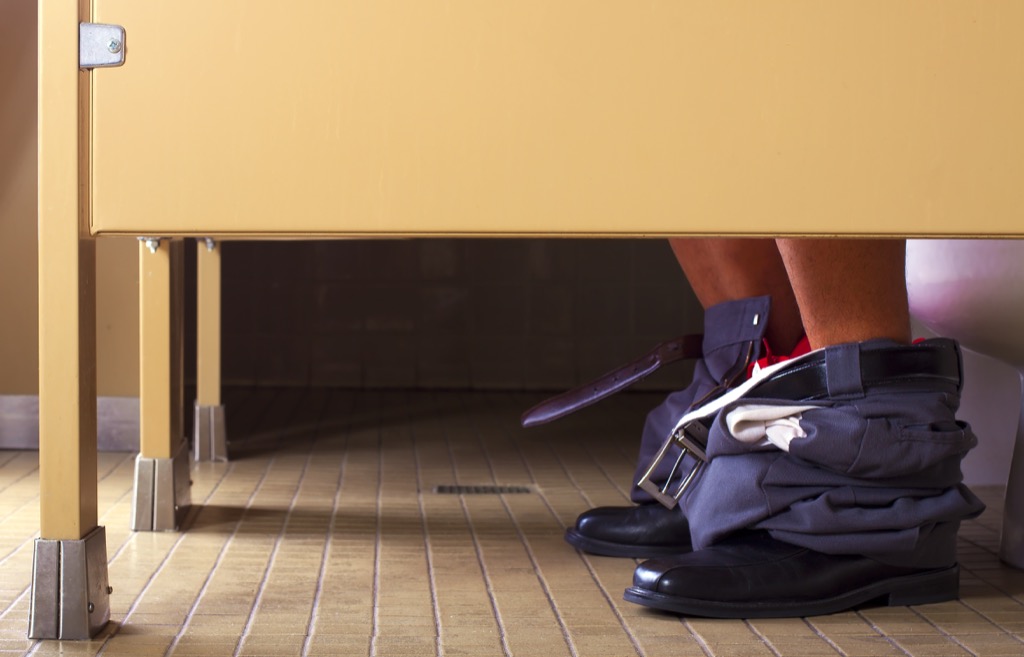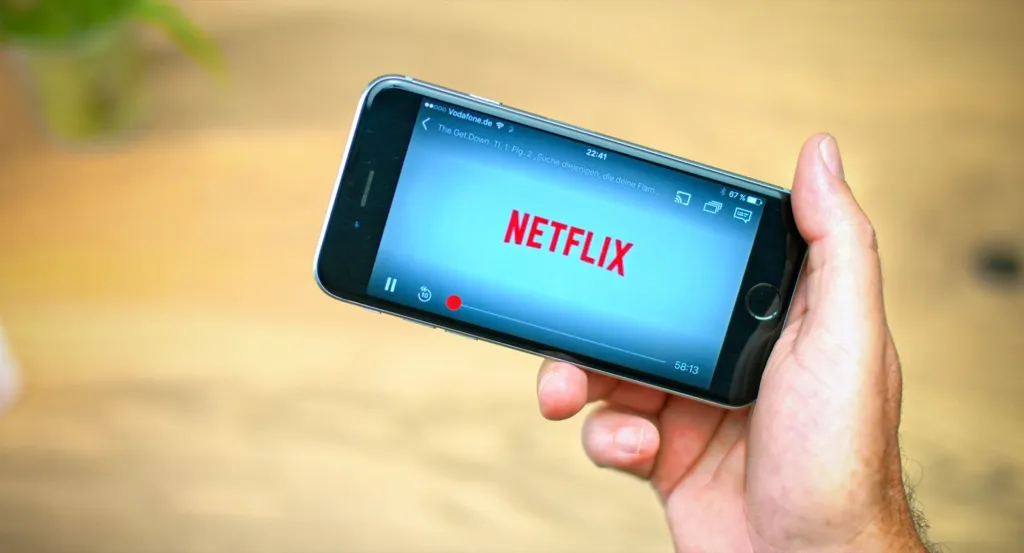
When you're running a big company, it's one thing to assert your dominance. It's another thing to go all 18th Amendment on the place, banning certain items and practices simply because you despise them. Well, these big-shots certainly did. There's the Japanese company that prohibited sitting down, the media honcho who banned garlic at his office's cafeteria, the Australian company that banned desk-side eating. These instances are just the tip of the dictatorial iceberg. Here, the 15 strangest, wackiest, most outrageous things horrible bosses have outlawed at their companies. Of course, if your boss is dictatorial in more than just what they ban, learn the 10 ways for dealing with a difficult boss.
1
Remote Working

Yahoo's former president and CEO Marissa Mayer made a big splash early in her tenure by going against the flex-work trend that many tech companies in particular have embraced (and with good reason). In 2013, in one of her first steps as boss, Mayer prohibited remote working.
"To become the absolute best place to work, communication and collaboration will be important, so we need to be working side-by-side," she declared at the time. "That is why it is critical that we are all present in our offices. Some of the best decisions and insights come from hallway and cafeteria discussions, meeting new people, and impromptu team meetings."
Many industry watchers and Yahoo employees grumbled about the decision, with a USA Today op-ed accusing her of "setting back the cause of working mothers" and Richard Branson tweeting "Give people the freedom of where to work & they will excel." But combatting critics, more than half a year later, the company reported that engagement was up and product launches had increased. However, all that wasn't enough to turn around the struggling Yahoo, and Mayer stepped down earlier this year, a setback for any advocates of banning remote working. And if you're a boss who doesn't want to end up on this list, here's how to build a tight-knit business team.
2
Celebrations

Edward Mike Davis, aka "The World's Grumpiest Boss," firmly believed that fun had no place at work.
"There will be no more birthday celebrations, birthday cakes, levity or celebrations of any kind within the office," he wrote to employees of his Tiger Oil Company on Feb. 8, 1978. "This is a business office. If you have to celebrate, do it after office hours on your own time."
Birthdays and holidays could not be celebrated at the office, and staff were told not to greet their boss when they passed him in the hall. "If I want to speak to you, I will do so. I want to save my throat. I don't want to ruin it by saying hello to all of you." What a jerk. Here's how to deal with a boss like that.
3
Garlic

Rumors have swirled for years that Conde Nast Chairman Si Newhouse might be a vampire. At least, that might explain his alleged hatred of garlic. The magazine mogul reported despises the smell, taste, and very existence of the stuff, and has banned it from the Conde Nast lunchroom. Occassional exceptions have been made, such as when Oceo chef Shane McBride visited in 2004 and prepared a socca chickpea pancake filled with braised lamb shank, topped with tomato ginger marmalade and yogurt sauce…with about four cloves of garlic used in cooking the lamb. "Nobody said anything to me [about the ban]," McBride told Women's Wear Daily in his defense. "I can't believe they could even taste it."
4
Meat

Montreal may be famous for its smoked meat, but anyone working at the city's handbag company, Matt and Nat, had better leave it at the door. To live by its eco-friendly mission (using recycled materials from everything from plastic bottles to old tires to create its products), the company's creative director demanded that his workers only eat vegetarian at work—even keeping fish off the menu. The rule extended to what employees wore: no suede, fur, or leather are allowed, either. Working like this demands some balancing out: Make sure to eat the best steak marinade recipes of all time.
5
Coffee

Many people can't get through a morning without a few cups of coffee (or the afternoon, let's be real) to keep them fueled. However, medics and other staff members at a handful of UK hospitals were told they needed to figure out an alternative when the head of clinical support ruled out the drinking any tea or coffee in the hospitals' public areas, stating that "Members of the public are frustrated by long waiting times during clinics and for appointments and are inflamed by seeing members of staff enjoying hot and cold drinks at the reception desks." If they wanted to get their caffeine fix, these doctors and nurses had better do it in private. But if your workplace is more lax about coffee drinking, make yourself a hot drink to take to work with these 15 great coffee makers.
6
Milk

It's not exactly accurate to say Richard Wilson, executive director of energy firm Sparrows Group, banned milk from the office. In fact, the company supplied milk to its workers free of charge. But the ban was how the milk was used. While the company's 450 staff members could use milk in their tea or coffee, they were expressly prohibited from putting any on breakfast cereal.
"There is well in excess of 100 pints of milk distributed between our facilities each day," the company wrote in an email to all staff. "The milk purchased by the company is for use with tea or coffee. The use of this milk for cereal is to cease with immediate effect."
7
Eating at Desks

The bosses at postage service company Australia Post didn't worry about banning a specific kind of food or drink—they just banned all of them, at least while workers were at their desks. The employers were concerned that food or drinks could result in a spill that would damage the mail the workers were handling, or the carpet underneath them (they also did not like them snacking when they weren't on an official break). After some pressure from the workers' union, the employer gave some ground: workers could drink water or coffee, as long as it was out of a spill-proof mug. Of course, this may not be an entirely bad idea: Forced break time is one of 15 ways to triple your productivity immediately.
8
Beards

Hipsters, consider yourselves warned: just last month, UK construction firm Mears laid down the law on facial hair, prohibiting the wearing of beards by any workers. According to the company, it wasn't for aesthetic reasons, but for safety concerns. In the letter the company sent out to workers, informing them of the policy, it wrote that "operatives who work in a dusty environment—all of ours—must come to work clean shaven and able to wear appropriate dust masks effectively." The worker's union countered that this was just a cost-saving strategy for the company to avoid buying better face masks. Margot Robbie would disapprove as well.
9
The Word 'Mate'

Speaking of healthcare restrictions, at an Australian hospital, the cheery casual greeting of calling someone "mate" was 86'ed by the boss, who determined that "This type of language should not be used across any level of the organization such as employee to employee or employee to client." Also on the list of prohibited terms of endearment: "darling," "love," "sweetheart," and "honey."
There was not too much pushback on this rule, though. As Nola Scilinato, organizer of the Northern NSW Nurses and Midwives Association, said: "people need to use professional language while at work, but with the appropriate flexibility to interact normally with patients." No word on if the company banned the 40 words and phrases no man over 40 should ever say, ever.
10
Using the Bathroom

Like the milk at Sparrows Group, the bosses at the call centers for Norweigian insurance company DNB, didn't ban the use of the bathroom altogether. But they limited it to eight minutes a day. Using high-tech surveillance equipment, they monitored when an employee went to the restroom (or took a cigarette break or any other non-work activity) and how long they spent there. If that time exceeded eight minutes, and the call center phones were left unattended beyond the maximum, the employer would be alerted and discipline the worker.
11
Sitting Down

Standup desks have become all the rage at workplaces throughout the world, thanks to the health benefits that have been found in moving throughout the day. But Japanese plastic manufacturer Iris Ohyama took this a step further, banning sitting altogether when employees were in front of a computer. For a decade, the company has banned the use of computers at workers' personal desks, instead setting up shared PC workstations. But those who want to use the workstations must be on their feet. Good news for those workers: A standing desk is one way to conquer dreaded lower back pain once and for all.
12
Meetings

Meetings are often seen as a necessary evil of the workplace. They take up time that could be better spent on other activities and rarely result in much actually getting done—but most bosses seem to love them (and there are tricks to make your meetings more productive). Not so with PricewaterhouseCoopers Australia's chief executive Luke Sayers, who banned the holding of internal meetings from 10am to 4pm. The push came as part of an effort to get the company focused more on clients and their needs during the day (and to increase the organization's billable hours). Seeing as not all companies are so ergonomic, you'll likely be stuck in meetings, so learn the 14 ways smart men have conquered business meetings.
13
Cell Phones

It's one thing to discourage personal calls while on the job, but FedEx banned employees from so much as bringing their cell phone to work at all. At the company's Indianapolis transportation hub, workers were urged to leave their phones in their cars. While the company cited safety and security as the reasons for keeping personal calls out of the workplace, employees did not see it in such positive terms.
"I think it is infringing on everyone's right," an anonymous FedEx worker told local news station WTHR "Not having some way to get hold of me in an emergency—that really bothers me." Although it's not a terrible idea to try and spend less time staring at your smartphone.
14
Netflix

This one pretty much makes sense. After realizing that its bandwidth was being slowed by its more than 100,000 employees streaming music and video (an estimated 50,000 five-minute YouTube clips and 4,000 hours of music on Pandora per day) Procter & Gamble Co. blocked the music streaming service as well as Netflix (it had to put up with YouTube since many workers used it for business purposes).
15
Getting Packages

HSBC, JP Morgan, Citi, and other employers have put restrictions on workers getting packages delivered to them at work. Similar to the bandwidth getting filled with streaming video, a number of employers grew fed up with the piles of parcels backing up in the office mailroom—much of it from online shopping that had nothing to do with their actual work.
For more amazing advice for living smarter, looking better, and feeling younger, follow us on Facebook now!





















